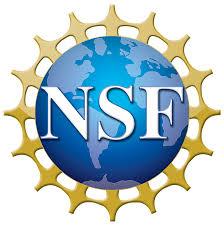The Sixth International Workshop on Intelligent Cloud Computing and Networking (ICCN 2024)
Organized in conjunction with
IEEE International Conference on Computer Communications, May 20, 2024
9:00 – 17:00 ● Room: Regency E
CALL FOR PAPERS COMMITTEE PROGRAM
Cloud computing, as well as cloud-inspired business models, enables on-demand access to a shared pool of resources, namely computing, storage, networks, services, and applications. With the advent of cloud-based systems, cloud operators have been aiming at reliable, secured, privacy-preserving and cost-efficient cloud design and management. The heterogeneity of cloud applications leads to the challenge of holistic design of a robust cloud system which can oversee and handle the diverse needs of numerous types of applications. On the other hand, the emerging technologies, such as generative artificial intelligence, distributed machine learning, big data analytics, Metaverse, and digital twin, have great influence on the cloud and networking designs. These challenges enforce cooperation of various players in the cloud systems as well as the cloud-edge collaborative systems, each of which focuses on a different segment such as intelligent computing, communication and networking, applications, and systems.
The 6th International Workshop on Intelligent Cloud Computing and Networking (ICCN’2024) is the evolution of the previous 7 editions CCSNA (Cloud Computing Systems, Networks, and Applications) and further 5 editions ICCN workshop, starting in IEEE GLOBECOM’2013. It aims at the crossroads between scientists, researchers, practitioners and students from diverse domains in cloud computing and cloud-edge collaborative research. The Workshop aims at attracting contributions of system and network design that can support existing and future applications and services.
General Co-Chairs:
Alfredo Grieco, Politecnico di Bari, Italy
Moayad Aloqaily, xAnalytics Inc., Ottawa, Canada
Zhi Zhou, Sun Yat-sen University, China
Keynote and Panel Chair:
Huaming Wu, Tianjin University, China
Publicity Chairs:
William Liu, Unitec, New Zealand
Shen Yan, Huawei Technologies Co., Ltd
Steering Committee:
Jiannong Cao, The Hong Kong Polytechnic Univ, Hong Kong
Hitoshi Asaeda, NICT, Japan
Jie Wu, Temple University, USA
Xiaoming Fu, University of Gottingen, Germany
Jie Li, Shanghai Jiao Tong University, China
Chuan Heng Foh, University of Surrey, UK
Jinsong Wu, Universidad de Chile, Chile
Zongpeng Li, Tsinghua University, China
Ruidong Li, Kanazawa University, Japan (Chair)
08:50 – 10:00
Opening and Keynote Session 1
Keynote Speaker: Edith C.-H. Ngai, University of Hong Kong, Hong Kong SAR,
Title: Building Resilient AI: Exploring Robustness and Heterogeneity in Federated Learning,
Session Chair: Ruidong Li, Kanazawa University, Japan
10:00 – 10:15
Coffee Break
09:00 – 10:00
Session 1: Cloud and Edge Computing
Session Chair: Zhi Zhou, Sun Yat-sen University
- AI-Driven Automation for Optimal Edge Cluster Network Management, Cheikh Saliou Mbacke Babou (National Institute of Information and Communications Technology (NICT), Japan); Yasunori Owada, Masugi Inoue, Kenichi Takizawa and Toshiaki Kuri (National Institute of Information and Communications Technology, Japan)
- Delay Analysis of Multi-Priority Computing Tasks in Alibaba Cluster Traces, Chenyu Gong (The Hong Kong University of Science and Technology (Guangzhou), China); Mulei Ma (Hong Kong University of Science and Technology (Guangzhou), China); Liekang Zeng (Hong Kong University of Science and Technology (Guangzhou) & Sun Yat-Sen University, China); Yang Yang (Hong Kong University of Science and Technology (Guangzhou), China); Xiaohu Ge (Huazhong University of Science & Technology, China); Liantao Wu (East China Normal University, China)
- Power Efficient Edge-Cloud Cooperation by Value-Sensitive Bayesian Attractor Model, Tatsuya Otoshi, Hideyuki Shimonishi, Tetsuya Shimokawa and Masayuki Murata (Osaka University, Japan)
- DRL-Based Two-Stage SFC Deployment Approach under Latency Constraints, Aleteng Tian (Beijing Jiaotong University, China); Bohao Feng (Beijing Jiaotong Unviersity, China); Yunxue Huang and Huachun Zhou (Beijing Jiaotong University, China); Shui Yu (University of Technology Sydney, Australia); Hongke Zhang (Beijing Jiaotong University, China)
11:15 – 12:15
Session 2: Cloud and Edge Computing
Session Chair: Jun Wu, Waseda University
- Sample-efficient Learning for Edge Resource Allocation and Pricing with BNN Approximators, Feridun Tütüncüoğlu and György Dán (KTH Royal Institute of Technology, Sweden)
- Joint Optimization of Charging Time and Resource Allocation in Wireless Power Transfer Assisted Federated Learning, Jingjiao Wang (China Three Gorges University, China); Huan Zhou (Northwestern Polytechnical University, China); Liang Zhao, Deng Meng and Shouzhi Xu (China Three Gorges University, China)
- LLM-CloudSec: Large Language Model Empowered Automatic and Deep Vulnerability Analysis for Intelligent Clouds, Daipeng Cao and Jun Wu (Waseda University, Japan)
- Towards Space Intelligence: Adaptive Scheduling of Satellite-Ground Collaborative Model Inference with Space Edge Computing, Yuanming Wang (Sun Yat-Sen University, China); Kongyange Zhao, Xiaoxi Zhang and Xu Chen (Sun Yat-sen University, China)
12:15 – 13:30
Lunch Break
13:30 – 14:30
Keynote Session 2
Keynote Speaker: Victor Leung, University of British Columbia, Canada,
Title: Title: Collaborative Secure Edge Intelligence for 6G IoT,
Session Chair: Ruidong Li, Kanazawa University, Japan
14:30 – 15:30
Session 3: Cloud and Edge Security
Session Chair: Liang Zhao, China Three Gorges University
- Blockchain Meets O-RAN: A Decentralized Zero-Trust Framework for Secure and Resilient O-RAN in 6G and beyond, Zakaria Abou El Houda (University of Montreal, Canada); Hajar Moudoud (Universite de Sherbrooke, Canada); Lyes Khoukhi (ENSICAEN, Normandie University, France)
- Ciphertext-Only Attack on a Secure k-NN Computation on Cloud, Santosh Kumar Upadhyaya and Srinivas Vivek (International Institute of Information Technology, Bangalore, India); Shyam S M (Indian Institute of Science Bangalore, India)
- Deep Reinforcement Learning-based Trajectory Optimization and Resource Allocation for Secure UAV-Enabled MEC Networks, Gao Yuan (Tsinghua University, China); Yu Ding (Zhejiang University of Technology, China); Ye Wang (Lishui University, China); Weidang Lu (Zhejiang University of Technology, China); Yang Guo (Academy of Military Science of PLA, China); Ping Wang (Tsinghua University, China); Jiang Cao (Academy of Military Science of PLA, China)
- A Pragmatical Approach to Anomaly Detection Evaluation in Edge Cloud Systems, Sotiris Skaperas (University of Macedonia & ATHENA Research and Innovation Center, Greece); Georgios Koukis and Ioanna Angeliki Kapetanidou (Democritus University of Thrace & ATHENA Research and Innovation Center, Greece); Vassilis Tsaoussidis (Democritus University of Thrace, Greece); Lefteris Mamatas (University of Macedonia, Greece)
15:45 – 16:45
Session 4: Cloud and Edge Applications
Session Chair: Xian Li, Shenzhen University
- Latency and Bandwidth Benefits of Edge Computing for Scientific Applications, Abdur Rouf and Batyr Charyyev (University of Nevada Reno, USA); Engin Arslan (University of Texas Arlington, USA)
- Edge-assisted Super Resolution for Volumetric Video Enhancement, Jie Li (Northeast University, China); Di Xu, Zhiming Fan, Jinhua Wang and Xingwei Wang (Northeastern University, China)
- Double-Agent Deep Reinforcement Learning for Adaptive 360-Degree Video Streaming in Mobile Edge Computing Networks, Suzhi Bi, Haoguo Chen, Xian Li, Shuoyao Wang and Xiao-Hui Lin (Shenzhen University, China
- Accurate Water Gauge Detection by Image Data Augmentation using Erase-Copy-Paste, Guorong Ye and Chen Chen (Xidian University, China); Yang Zhou (Ministry of Water Resources of China, China); Hao Wang (the Xi'an Molead Technology Co. LTD., China); Lei Liu and Qingqi Pei (Xidian University, China)
16:45 – 17:45
Session 5: Cloud and Edge Computing
Session Chair: Shengyuan Ye, Sun Yat-Sen University
- Hierarchical Charging and Computation Scheduling for Connected Electric Vehicles via Safe Reinforcement Learning, Liang Li (Peng Cheng Laboratory, China); Lianming Xu, Xiaohu Liu, Li Wang and Aiguo Fei (Beijing University of Posts and Telecommunications, China)
- Multi-Aspect Edge Device Association Based on Time-Series Dynamic Interaction Networks, Xiaoteng Yang, Jie Feng, Xifei Song and Feng Xu (Xidian University, China); Yuan Liu (Guangzhou University & Guangzhou, China); Qingqi Pei (Xidian University, China); Celimuge Wu (The University of Electro-Communications, Japan)
- Flow Size Prediction with Short Time Gaps, Seyed Morteza Hosseini, Sogand Sadrhaghighi and Majid Ghaderi (University of Calgary, Canada)
- Self-Interested Load Announcement by Edge Servers: Overreport or Underreport?, Chen Huang (Southern University of Science and Technology, China); Zhiyuan Wang (Beihang University, China); Ming Tang (Southern University of Science and Technology, China)







